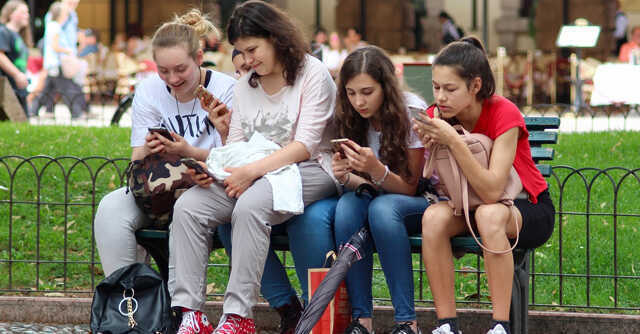
Children in India manage cyber risks better than global peers, study


Underage internet users in India are better prepared than their global counterparts when it comes to dealing with cyberbullying, phishing attacks and other cyber threats, claims a new study by Surfshark, a VPN services company. India has the fifth-lowest exposure to online risks among children globally after Japan, Italy, Spain, and Ecuador. Surfshark attributes this to better access to online safety programs in India. “India has 30% stronger online safety education programs than the global average,” the study shows.
The shift to remote learning and increase in time spent online on apps and games after the covid-19 pandemic has put underage users on the radar of cybercriminals. Cybercrimes against children in India grew by 260% in 2020, shows National Crime Records Bureau (NCRB) data shared in Parliament by the Ministry of Women and Child Development in December 2021.
“Educating children about cyberthreats plays a massive role in them knowing how to deal with any problems that may arise online,” said Aleksandr Valentij, chief information security officer at Surfshark.

The Surfshark study further shows that countries in the lower-middle-income group have better online safety education with an average score of 55 out of 100 as compared to countries in the richer income group, which had an average score of 51 out of 100. For instance, countries such as Saudi Arabia had a non-existent online safety education, whereas, countries such as India, Malaysia, Japan, Australia, and New Zealand have the strongest online risk management skills.
Though attacks have increased, the yearly financial losses caused by cybercrimes against children in 2020 declined by 32%. The total losses in 2020 was $ 660,000 as compared to $975,311 in 2019, the study claims.
“Indian students are constantly targeted by cybercriminals and cyberbullies. In many instances, children themselves are engaging in these illegal activities,” warned Pavan Duggal, a cyberlaw expert and Supreme Court lawyer.

Duggal points out, Indian children may be better prepared than their peers in some countries, but there are still many gaps. “Most children are aware of risks but they don’t have practical knowledge. Most of them still take the internet for granted and are leaving a huge volume of digital footprint that can be exploited by state and non-state actors,” he added.
Cyber experts believe that a specialized approach is required to make underage internet users understand the cyber risks so they can make better choices online. Valentij cautions that there is no one-size-fits-all approach to discussing online safety with children. Parents must discover ways to converse with them and assist them in understanding what to do.
Duggal feels a lot of capacity is required at the school level. He said unless cyber law and cybersecurity are not inculcated in the school curriculum from first-grade we will not be very successful in protecting them.

Governments in various countries have stepped up efforts to protect children as they spend more time online for learning and fun. In India, the proposed data protection bill (2019) has added new provisions to protect data related to children. It identifies anyone under the age of 18 as a minor and requires companies to seek permission from parents for data collection. This has faced some pushback from online companies that want a graded approach similar to the one followed in Europe. Under GDPR, consent from parents is required if the child is 13 years or below.
Online service providers and social media companies on their part have also made many changes in their platforms to protect children. For instance, both Meta and Google have introduced new safety features that prevent advertisers from targeting users under 18 years of age.
Apple announced last August that it will use automated tools to scan devices including iPhones and iPads to spot child sexual abuse material (CSAM) such as explicit photos being circulated through their devices.

